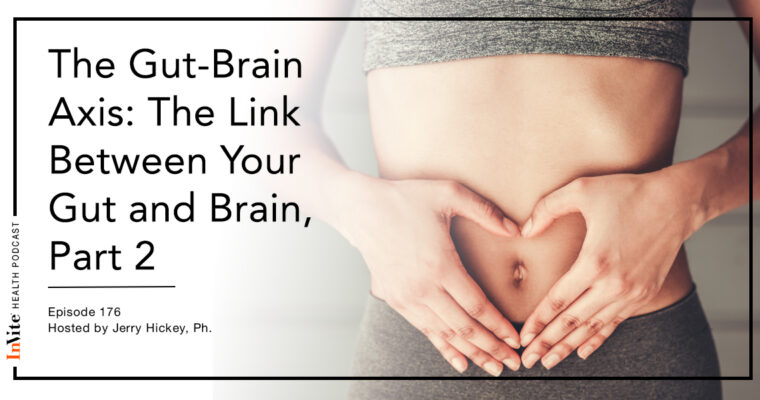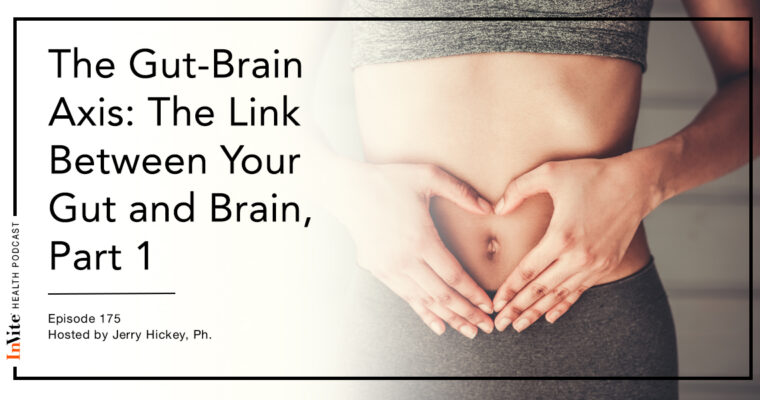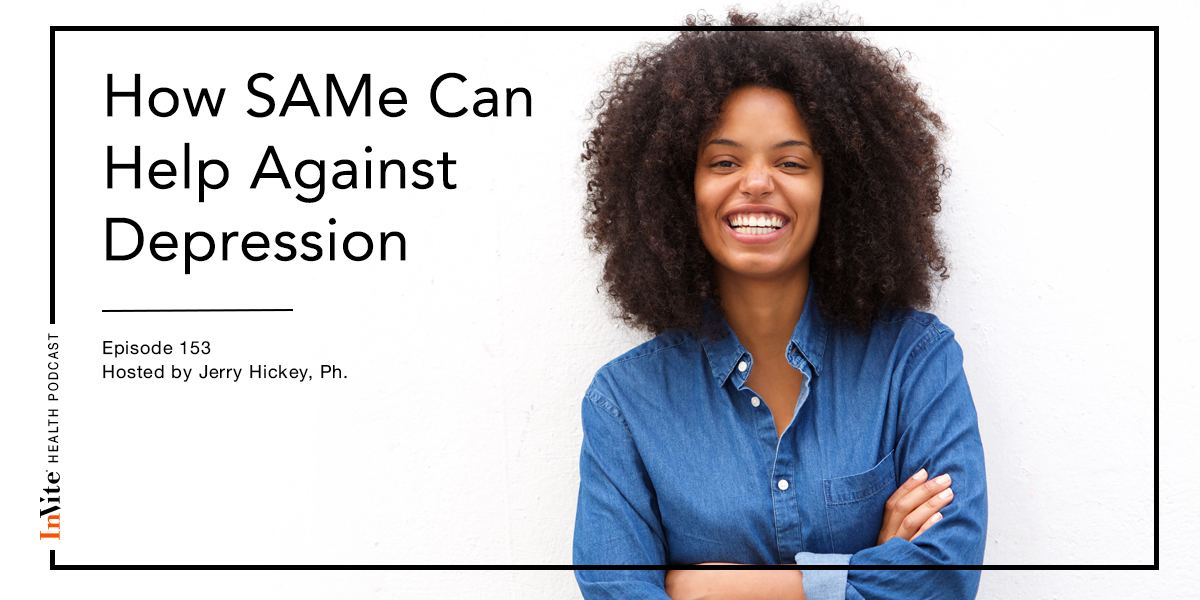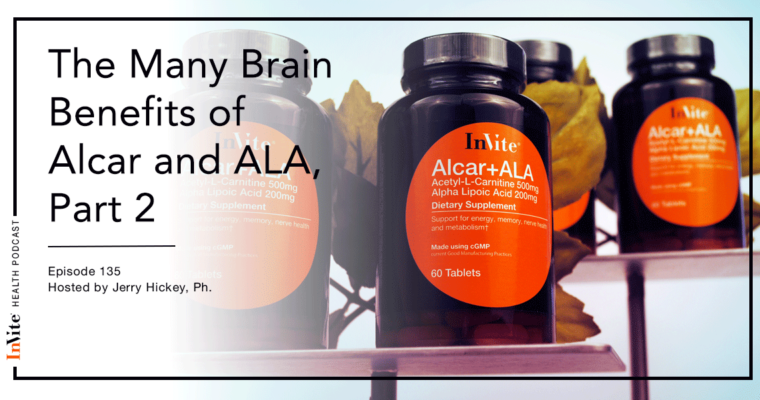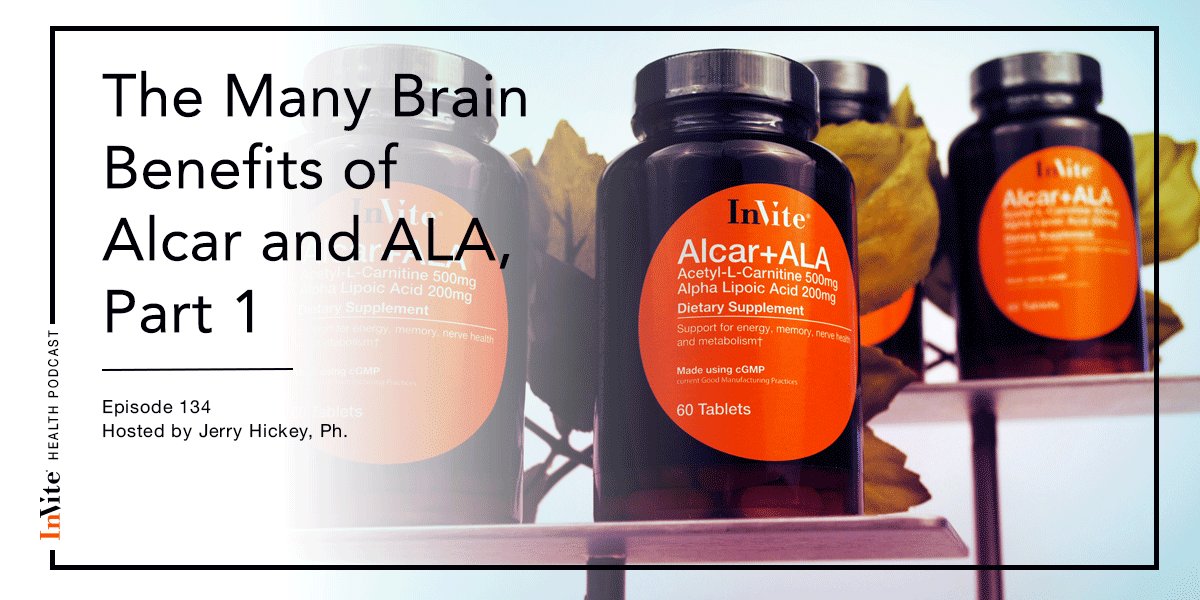Invite Health Podcast, Episode hosted by Jerry Hickey. Ph
Subscribe Today!
SAMe, or S-Adenomethionine, is a compound that we naturally make in the human body. Our highest concentrations are in our liver and our brain. SAMe has been shown to help maintain a stable mood and to support joint and liver health. But this compound has also been studied for its benefit against depression. Depression effects about 15 million Americans each year. The annual cost for treatment is about $50 billion.
What is SAMe’s role in the body?
This compound does a bunch of things in the human brain. It has an anti-inflammatory effect because it raises the level of a very key antioxidant called Glutathione. Glutathione levels vary from person to person and they drop with age. It breaks down peroxides which is important for the brain. Your brain is a super, high-energy organ. There is a great deal of circulation needed, in order to carry all of the calories from your food to your brain so you can use that for energy. In fact, is it thought that your brain takes 20% of all of the calorie content from each meal! Yet, your brain is only 2% of the dry weight of your body. As a byproduct of using sugar for energy, the cell releasing peroxide. This can damage and destroy the cell, so the body has to have ways to find the peroxide, which is where Glutathione comes into play.†
SAMe has to be enteric coated (an additional coating) in order to get past the stomach acids and the intestinal enzymes, which can deactivate and breakdown SAMe.
Besides this nutrient helping to restore antioxidant levels in the brain, it also creates neurotransmitters. We know of about 100 neurotransmitters in the brain. Some are needed for energy, others are needed for sleep and the immune system. SAMe is involved with four key neurotransmitters†:
- Serotonin
- Melatonin
- Dopamine
- Norepinephrine
Clinical Research on SAMe
An arm of the government that is within the Department of Health and Human Services is called The Agency for Healthcare Research And Quality. Their job is to collate evidence so that different organizations and agencies can base clinical guidelines off of them. When it came to SAMe and depression, researchers compiled 28 human clinical trials in their meta-analysis. In all 28 trials, SAMe worked; it improved the Hamilton Rating Scale for depression (a questionnaire that helps doctors judge how severe depression is and how to guide them regarding treatment).

The Department of Psychiatry at the University of Pennsylvania School of Medicine, The Department of Psychiatry at New York Medical College, Baylor Research Institute in Dallas, The Department of Psychiatry Michigan State University, Browne University Department of Psychiatry, The Department of Psychiatry UCLA, Columbia University Medical Center and Harvard Medical School in Boston published a review of SAMe for clinicians in the Journal of Clinical Psychiatry. The review included 115 human clinical trials and found promising evidence of the efficacy and safety of SAMe, when used as mono-therapy (used with an anti-depressant).
Published in the American Journal of Psychiatry from the Center for Treatment Resistant Depression from Massachusetts General Hospital and Harvard Medical School. Researchers added SAMe to the SSRI drugs of 73 patients who had major depressive disorder. They found that if they added SAMe to the drug (in patients where the drug was not working), the drugs started to work. It was far superior to placebo.
Questions about SAMe for Depression? Leave a comment below to join the discussion!
Thank you for tuning in to the Invite Health Podcast. You can find all of our episodes for free wherever you listen to podcasts or by visiting www.invitehealth.com/podcast. Make sure you subscribe and leave us a review! Follow us on Facebook, Twitter and Instagram at Invite Health today. We’ll see you next time on another episode of the Invite Health Podcast.


